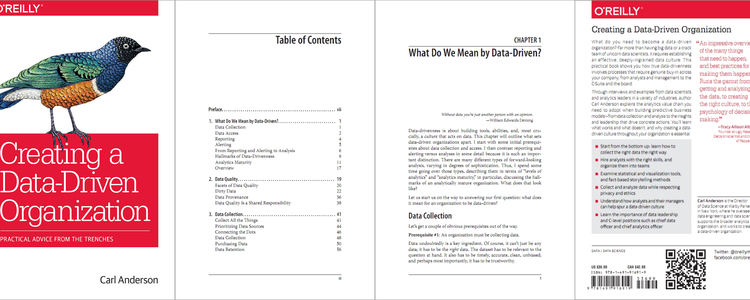I’ll be at VentureBeat’s Transform AI conference July 10-11 in San Francisco. Let me know if you’re attending; would be great to meet. -Tracy It’s not always easy staying on the AI bandwagon. Claims of algorithmic bias abound and (mis)applications threaten people’s trust. Not everyone wants their face recognized or their driver’s license scanned. Developers […]
1. Machines Gone Wild → Digital trust gapLast year I spoke with the CEO of a smallish healthcare firm. He had not embraced sophisticated analytics or machine-made decision making, with no comfort level for ‘what information he could believe’. He did, however, trust the CFO’s recommendations. Evidently, these sentiments are widely shared. — Tracy A […]
Our founder, Tracy Allison Altman, will talk about cognitive bias and behavioral economics for software design @ Papers We Love – Denver. Tversky and Kahneman’s classic “Judgment under Uncertainty: Heuristics and Biases” challenged conventional thinking about bias in decision making, inspiring new approaches to cognitive science, choice architecture, public policy, and the underlying technology. Join […]
1. Evidence → Social RCTs → Transformational change More progress toward evidence-based social programs. The Laura and John Arnold foundation expanded its funding of low-cost randomized controlled trials. @LJA_Foundation, an advocate for evidence-based, multidisciplinary approaches, has committed $100,000+ for all RCT proposals satisfying its RFP criteria and earning a high rating from its expert review […]
1. Great stuff on data-driven decision making in a new O’Reilly book by Carl Anderson (@LeapingLlamas), Creating the Data-Driven Organization. Very impressive overview of the many things that need to happen, and best practices for making them happen. Runs the gamut from getting & analyzing the data, to creating the right culture, to the psychology […]
1. Deep knowledge → Wagering strategy → Jeopardy! win Some Jeopardy! contestants struggle with the strategic elements of the show. Rescuing us is Keith Williams (@TheFinalWager), with the definitive primer on Jeopardy! strategy, applying game theory to every episode and introducing “the fascinating world of determining the optimal approach to almost anything”. 2. Gun controls […]
1. Do we judge women’s decisions differently? Cognitive psychologist Therese Huston’s book is How Women Decide: What’s True, What’s Not, and What Strategies Spark the Best Choices. It may sound unscientific to suggest there’s a particular way that several billion people make decisions, but the author doesn’t seem nonchalant about drawing specific conclusions. The book […]
1. Human fallibility → Debiasing techniques → Better science Don’t miss Regina Nuzzo’s fantastic analysis in Nature: How scientists trick themselves, and how they can stop. @ReginaNuzzo explains why people are masters of self-deception, and how cognitive biases interfere with rigorous findings. Making things worse are a flawed science publishing process and “performance enhancing” statistical […]





